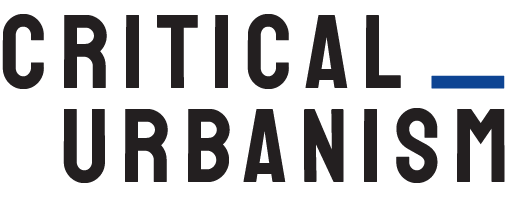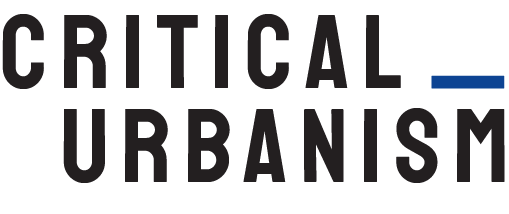
“Experimenting with the architects’ agency” – Interview with Martynas Germanavičius, the director of Architektūros fondas
What are the goals and values behind the ‘Experiments’ Platform’ Project by Architekturos Fondas (eng. Architecture Foundation)?
We launched Experiments’ Platform only last year, so I would like to start by answering this question from a little distance, providing a broader perspective about the context in which it was born. If you look at formal architecture studies, the aim there is usually to prepare architecture students for mastering a certain skill set and meeting existing professional standards. From its very beginning, Architekūtros Fondas aimed to fill the need for informal education more focused on civic, critical and artistic approaches. In the last ten years Architektūros fondas has become the main platform for Lithuanian architects and urban activists, willing to initiate and develop various cultural and educational projects. With time most of these projects – to name just a few – Open House Vilnius, Keliaujančios architektūros dirbtuvės (Travelling Architecture Workshops) or Architecture Talk Series (now A pokalbiai) become well known annual projects reaching wide audiences and involving hundreds of volunteers. However with such organisational growth we realised the need of openness for new initiatives and support for emerging professionals. Even if you look at the organisation name Architektūros fondas, “foundation” usually stands for support and provision of necessary resources for development.
Having all this in mind, we initiated Experiments’ Platform – an alternative education programme for developing knowledge about architecture as an object of study and for applying architecture’s methodologies and tools for exploring other relevant phenomena. We believe that starting from participants’ interest is a very important part of the programme. Architects are taught to work for a client driven environment, where they have to follow given briefs and to fulfil others needs. By focusing on personal interest we also wish to empower spatial practitioners to think critically about the existing systems and structures, as well as developing their voice in the discourse or even open up new territories for exploration. Of course all of that doesn’t come without trying, so Experiments’ Platform embraces not only final result, but also the process and failures as less visible yet essential components of every creative practice.
In your attempt to give a space to architectural practice ‘without a client’, do you have a notion of some other types of recepients of architectural work that you support? Architects’ community? People in power? Some specific kinds of space users?
From how I see architectural practice in the broadest sense, it is bound between a client and a user. Someone enables you and there is somebody you are creating for. However by routinely following all protocols we tend to forget about where this dependency comes from and what is our agency in it. Whether you are an architect, creative bureaucrat or activist, it is always relevant to critically explore what drives us, how conditions shape us or how we could influence them.
What are the notions and practices of experimentation that you promote – both in terms of the projects that have happened already and in terms of what you envision in the future?
The programme framework is built upon mentorship support, but ideas and research methodologies for experimentation come from the interests of participants, who within six months have to test and develop them. So in our case mentees are the ones promoting those notions and practices. In two years we see that questions and methodologies developed within Experiments’ Platform vary from artistic research of local carpentry techniques to performative speculations in the form of a walkshop about our changing habits in urban areas.
Curatorial input is mostly visible in the programming and selection process, where we personally invite mentors and select the mentees from the open call. In both of these steps we aim to look for creatives raising questions, which in architecture discourse are rare or developing methods that were not being explored yet in our context. More than that, this year instead of the theme, program curator Gabrielė Černiavskaja proposed to navigate in the process by following the triad of questions: “What do we need? What do we have? What do we want?”. This gives three interconnected paths for the participants’ explorations.
It sounds like the program is open for a wide variety of practices. Do you have mentees without prior architectural training? Do you have any definition of architectural practice that your mentees should fit into?
So it is quite difficult to define the boundaries, when you strive to overstep them. Mentees should not necessarily come from architecture. If someone working with different tools applies we are always interested in how we could support their idea development. Participants with architecture background still make the majority, but this year we also were joined by participants coming from philosophy, stage design, biology. So, to put it briefly, we are open to anyone interested in spatial, infrastructural or systemic tools and contexts, as well as in having a fresh idea to explore.
When shaping Experiments’ Platform identity, do you have in mind some history of experimentation, in architectural practice and beyond?
As far as I know, formal architectural education does not have a very deep rooted tradition. For a long time it was a craft learned on the construction site. One of the first institutional education systems for architects was developed in 18th century France École des Beaux-Arts. From architectural education examples I could say we know and we aspire to some of ideas from the Bauhaus school, Black Mountain College in North Carolina, who were open for trans-disciplinary collaborations stimulating research and experimentation in the widest sense. Our aim is also to open Experiments’ Platform for any one interested in exploring spatial questions, whether you are coming with the skills learned in the fields of journalism, arts or microbiology.
Very abstractly I could say Experiments’ Platform is inspired by modern scientific approach, but it goes out of ‘the laboratory’ that is associated with modern science as a sterile and controlled context. Mentees in the programme start by raising an idea (hypothesis) and through experimenting and testing it out, they try to understand whether presumptions work within the context they researched. However, as we don’t have stable conditions in the process, the attempt in these experiments is not so much to confirm certain theories, but rather to experience and explore by doing.


